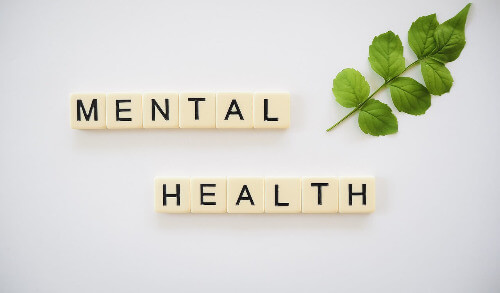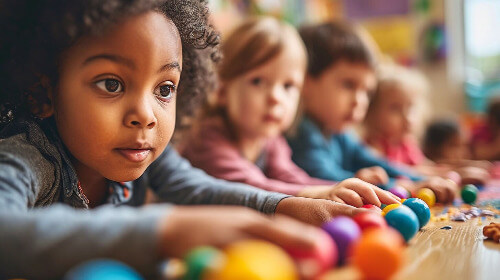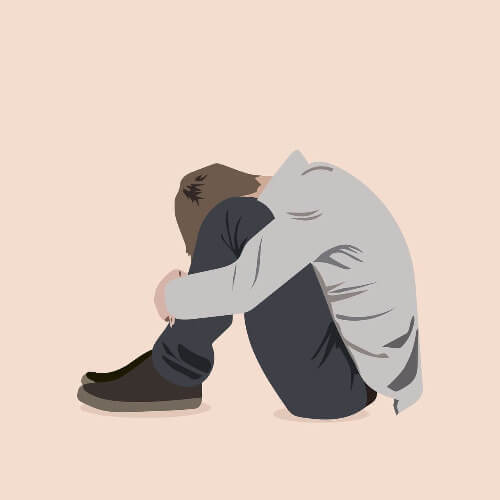Understanding and Supporting Childhood Mental Health
As a parent, you only want what’s best for your children. You consider their physical health, education and social skills but what about childhood mental health? It’s important too.
 Woman experiencing many emotions, ie broken heart, low energy, sad and crying, puzzled.
Woman experiencing many emotions, ie broken heart, low energy, sad and crying, puzzled.What is Childhood Mental Health?
Childhood mental health refers to the mental well-being of children from infancy through adolescence.
When they have good mental health, children will often develop positive relationships, they create manageable emotions, and are able to cope with the normal stresses of life.
Why is Childhood Mental Health Important?
Emotional Development
Children with good mental health can understand and manage their emotions. They know how to express their feelings - happiness, sadness and fear in healthy ways.
This ability helps them to deal with social interactions and is important to their overall development.
Social Skills
Children’s mental health plays a significant role in how they interact with others.
They are able to build and keep friendships, they are cooperative and communicate effectively. All these skills will be beneficial to their success in school and beyond.
Coping with Challenges
Even for children, life has its twists and turns. With good mental health they can handle setbacks, changes, and challenges. They know to seek help when it is needed and learn to solve problems.
Signs of Childhood Mental Health Issues
It’s important to recognize the signs of potential mental health issues in children. Here are some signs to watch for:
 The use of scrabble blocks to spell out Mental Health.
The use of scrabble blocks to spell out Mental Health.- Changes in Behaviour: Sudden changes in behaviour, such as increased irritability, aggression, or withdrawal, can indicate a mental health issue.
- Emotional Outbursts: Frequent and intense emotional outbursts that are not typical for your child’s age and development stage may be a sign.
- Difficulty Concentrating: Struggling to focus on tasks or a sudden drop in school performance can be linked to mental health concerns.
- Sleep Problems: Difficulty falling asleep, staying asleep, or having frequent nightmares can be indicators.
- Physical Symptoms: Complaints of headaches, stomach aches, or other physical symptoms without a clear medical cause may be related to mental health.
Supporting Childhood Mental Health
As parents and caregivers, there are many ways we can support our children’s mental health. Some practical tips include:
Create a Safe and Loving Environment
Children thrive in environments where they feel safe, loved, and valued.
Ensure your home is a place where they can express themselves freely without fear of judgment. Be supportive towards your child and love them unconditionally.
Foster Open Communication
Encourage your children to talk about their feelings. Ask open-ended questions and listen actively.
Show empathy and understanding. Just knowing that someone understands and cares often makes a difference.
Set Routines
By setting routines you are providing a sense of consistency which can be comforting for your child.
An example would be scheduled playtimes, regular meal times, and bedtime routines can all help to make your child feel secure.
Encourage Play and Physical Activity
 Children rolling around small balls to help them relieve stress and anxiety.
Children rolling around small balls to help them relieve stress and anxiety.An important part of your child’s mental health is play.
It helps your child express their emotions, develop social skills, and release stress.
Physical activity also has numerous mental health benefits, including reducing anxiety and improving mood.
Limit Screen Time
Excessive screen time can negatively impact children’s mental health.
Limit your child’s time on electronic devices and encourage other activities like playing outside and finding hobbies to participate in.
Model Healthy Behavior
Just by watching the adults in their lives, children can learn a lot. Be aware of your own behaviour, show them how to deal with stress, emotions and how to take care of their mental health.
Teach them to ask for help when it’s needed and keep positive relationships.
Explain Problem-Solving Skills
You can help your children develop problem-solving skills by explaining to them how to make decisions appropriate for their age.
When to Seek Professional Help
- Talk to Your Pediatrician: Discuss any concerns with your child's pediatrician. They can assess your child and refer them to the appropriate mental health specialist if needed.
- Find a Child Psychologist or Therapist: A mental health professional specializing in children can diagnose your child’s needs and provide appropriate therapy or counselling.
- Support Groups: Consider joining support groups for parents and children facing similar challenges.
Breaking the Stigma
One of the biggest challenges in addressing childhood mental health is the stigma that often surrounds mental health issues.
Breaking this stigma will create and environment where children feel comfortable asking for help.
Here are some ways to do this:
 Teen boy sitting with head between knees. Sad and depressed.
Teen boy sitting with head between knees. Sad and depressed.- Normalize Conversations About Mental Health: Talk openly about mental health in your home. Make it a normal topic of conversation, just like physical health.
- Educate Yourself and Others: Share with others everything you learn about mental health issues. The more people understand, the less stigma there will be.
- Be Supportive and Non-Judgmental: If your child or another family member is struggling with mental health, offer your support without judgment.
Childhood mental health is a part of childhood that is sometimes overlooked. You can learn all about what it means and how to recognize the signs of mental health issues.
This way you can provide the support and help your child may need to move on with their lives emotionally, socially and psychologically.






































New! Comments
Have your say about what you just read! Leave me a comment in the box below.